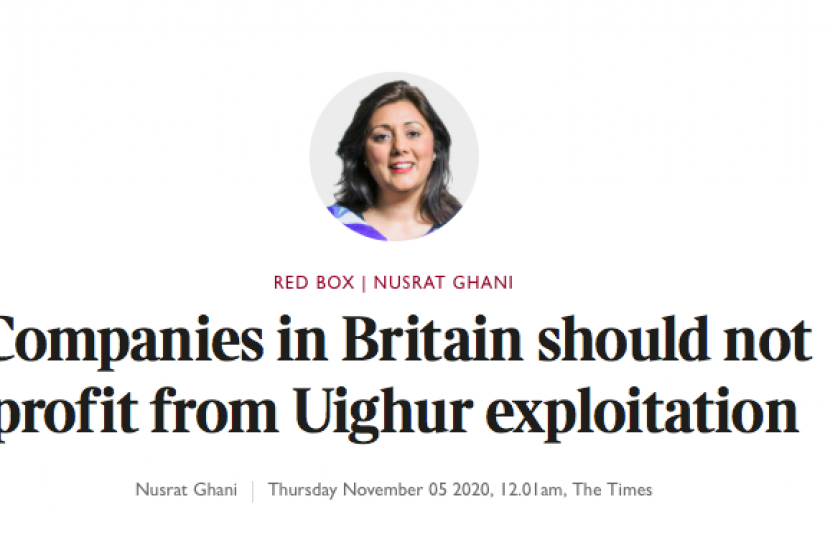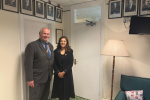
Read my article for the Times below 👇🏾
Today I will be leading the questioning of big high street-names, including BooHoo, Nike, The North Face, H&M, and, in TikTok, one of the biggest tech companies in the world, about the steps they are taking to ensure they do not benefit from the exploitation of the forced labour of Uighur in the Xinjiang region of China.
There is inconvertible evidence of mass atrocities taking place in Xinjiang. To compound the horror of these acts is the possibility that, here in Britain, consumers may be unknowingly supporting businesses that actually profit from some of the actions taking place in Xinjiang, including the forced labour of Uighurs.
The Australian Strategic Policy Institute’s Uighurs for Sale report names 82 foreign and Chinese companies directly or indirectly benefiting from the exploitation of Uighur workers in Xinjiang. The companies listed in the report span industries including the fashion, retail and information technology sectors.
Today, we have a valuable opportunity to ask prominent businesses operating in Britain in these sectors what they are doing to ensure their profits are not on the back of forced labour in China. These businesses are trusted names for many British consumers, and it is right they should be publicly held to account. Disney, in rejecting the committee’s invitation to appear, sends out a very poor message of their respect for British consumers and the sincerity of their commitment to human rights by refusing to answer questions from MPs on these most serious issues.
I hope this session will give us a clearer idea of the risks that UK businesses face when engaging supply chains that originate in China and, with the business minister Paul Scully in front of us, what more the government can do to ensure that businesses and consumers in the UK do not perpetuate the forced labour of Uighur.
As a committee, we will want to look at questions about supply-chain transparency and regarding evidence of compliance with labour, procurement and anti-slavery laws. We will also want to check on the effectiveness of the mechanisms currently in place, including company audit and monitoring and transparency in supply chain legislation, to ensure goods, materials and services are not imported to the UK which are the product of forced labour.
The UK is a beacon of freedom and hope for many but if we are truly serious about human rights it is important we look close to home too, not least in holding businesses that operate in Britain to account. There are concerning accounts that many products sold in the UK can be traced back to forced labour at camps in China — I hope our committee hearing can help to lift the lid on this exploitation and ensure that big firms, which are trusted by many Brits, are doing their utmost to ensure they do not profit from the vile acts taking place in Xinjiang.
The original article can be accessed here.

